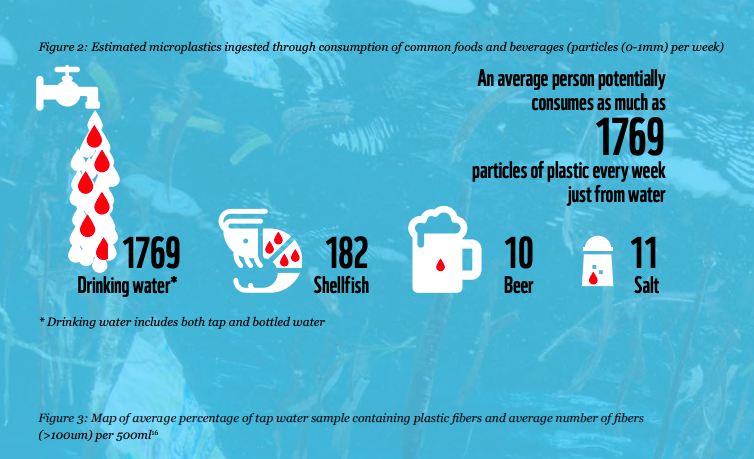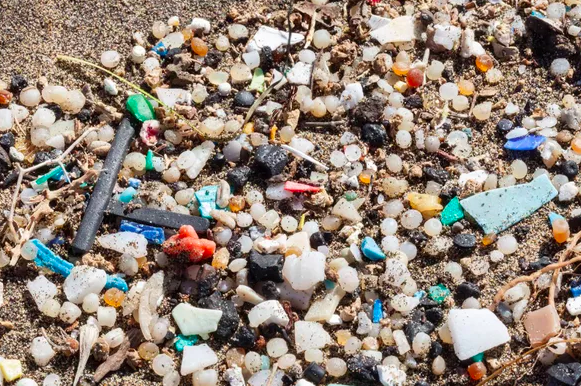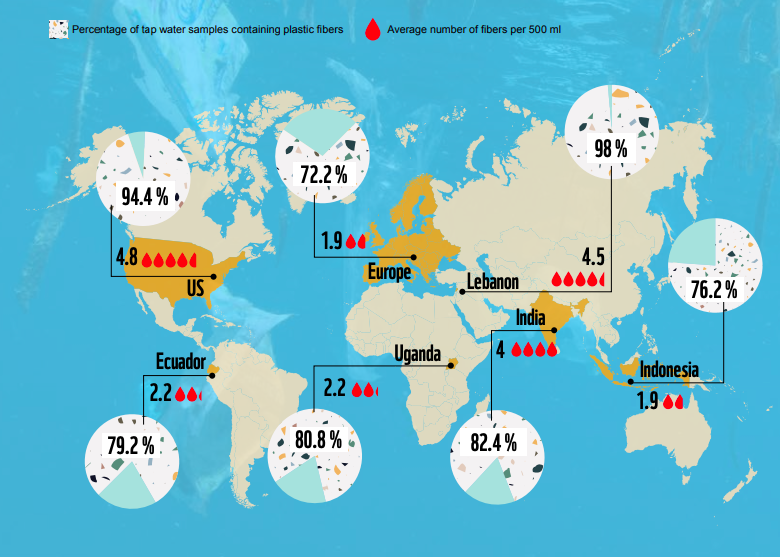A new study by the The University of Newcastle, Australia suggests that an average person could be ingesting approximately 5 grams of plastic every week, the equivalent of a credit card’s worth of microplastics.

The research was commissioned by the World Wildlife Fund for its report “No Plastic in Nature: Assessing Plastic Ingestion from Nature to People.”
Here are some key points from the study:
Microplastics are contaminating the air we breathe, the food we eat, and the water we drink.
The average person consumes as many as 1,769 particles of plastic every week just by drinking water — bottled or from the tap.
Shellfish is the second biggest source of plastic ingestion, with the average person consuming as many as 182 microparticles — 0.5 grams — from this per week. The report says this is because “shellfish are eaten whole, including their digestive system, after a life in plastic polluted seas.”
Some types of plastic carry chemicals and additives with potential effects on human health. Identified health risks are due to production process residues, additives, dyes and pigments found in plastic25, some of which have been shown to have an influence on sexual function, fertility and increased occurrence of mutations and cancers.
The specific effects of microplastics ingestion on human health are not yet fully understood, but scientists suspect that the health hazard may be more important than is currently understood. The long-term effects of plastic ingestion on the human body are not yet well documented.
Studies are underway to better understand the effects of plastic on our health. A key challenge to research is the overwhelming presence of plastic in our daily life, making it very hard to isolate the effect of a specific exposure pathway from other possible causes of exposure.
Globally, more than 330 million metric tons of plastic is produced each year, and global plastic production is expected to triple by 2050.
What can we do about this?
We need to tackle plastic pollution at its very source stop it from getting into the nature in the first place. Our priority, as individuals, communities and countries, should be reducing plastic production.
You can read the full report via this link.







Comments